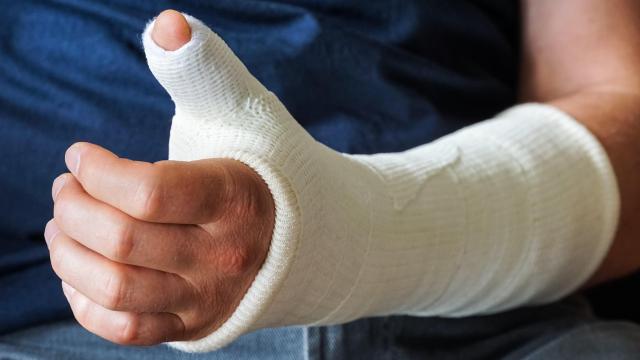An extra dose of vitamin D probably won’t make the average person’s bones any stronger. New research from a large-scale, placebo-controlled, and randomised clinical trial out Wednesday has found no evidence that taking vitamin D supplements reduces the risk of bone fractures in healthy older adults.
The study comes from researchers at the Brigham and Women’s Hospital, an affiliate of Harvard Medical School in Massachusetts. The team looked through data from an existing research project: the VITamin D and OmegA-3 TriaL (VITAL). More than 25,000 adults over the age of 50 with no major health problems were randomised to regularly take vitamin D and omega-3 supplements or a placebo, and they were tracked over five years.
The trial was primarily meant to find out whether taking these supplements reduced people’s risk of cancer or cardiovascular disease (it ultimately found a possible small benefit from omega-3 on heart attack prevention and no benefit from vitamin D on any measure). But the study’s design meant that a variety of health outcomes were also measured over its length — including documented bone fractures.
Nearly 2,000 cases of bone fractures occurred during the study period. But unfortunately, those taking vitamin D didn’t appear to be any more protected from developing them than the placebo group. No possible benefit was seen when looking more specifically at any of the different types of fracture we can get, such as hip or wrist fractures, nor was there any difference when accounting for factors like a person’s age, gender, or baseline weight.
In other words, no matter how they tried, the researchers simply found a complete lack of evidence for the benefits of vitamin D in preventing broken bones — at least for those without any preexisting risks. The team’s findings were published in the New England Journal of Medicine.
Vitamin D does play a crucial role in maintaining good bone health, especially since it helps us absorb two other important nutrients, calcium and phosphorus, from the foods we eat. So when people don’t get enough of it, they can develop a serious disorder called rickets, which is characterised by weakened bone and skeletal deformities. Aside from fixing a person’s deficiency, other research has suggested that people with certain bone-related disorders like osteoporosis can benefit from added vitamin D supplementation. Without these clear indications, though, it seems unlikely that vitamin D will do much for the average person.
“Overall, the results from this large clinical trial do not support the use of vitamin D supplements to reduce fractures in generally healthy U.S. men and women,” said lead author Meryl LeBoff, chief of the Calcium and Bone Section in the Endocrine Division at Brigham, in a statement. “These findings do not apply to adults with vitamin D deficiency or low bone mass or osteoporosis. Most participants in the trial were not deficient and may have already reached the vitamin D level needed for bone health.”
While it might be tempting to take vitamin D supplements just in case, they aren’t entirely free of risk. It’s possible to overdose on vitamin D, and in serious enough cases, people have ended up in the hospital after taking too much vitamin D. Really, unless you and your doctor are sure that you need them, taking supplements for your health is generally useless at best and actively harmful at worst.
